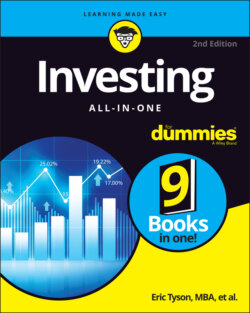Читать книгу Investing All-in-One For Dummies - Eric Tyson - Страница 148
Evaluating Investment Tips
ОглавлениеHere’s a tip: Never automatically invest just because you get a hot tip from someone. Good investment selection means looking at several sources before you decide on a stock. No shortcut exists. That said, getting opinions from others never hurts — just be sure to carefully analyze the information you get. Here are some important points to bear in mind as you evaluate tips and advice from others:
Consider the source. Frequently, people buy stock based on the views of some market strategist or market analyst. People may see an analyst being interviewed on a television financial show and take that person’s opinions and advice as valid and good. The danger here is that the analyst may be biased because of some relationship that isn’t disclosed on the show. Analysts are required to disclose conflicts of interest on business channels.
Get multiple views. Don’t base your investment decisions on just one source unless you have the best reasons in the world for thinking that a particular, single source is outstanding and reliable. A better approach is to scour current issues of independent financial publications, such as Barron’s or Money magazine, and other publications and websites.
Gather data from the SEC. When you want to get more objective information about a company, why not take a look at the reports that firms must file with the SEC? These reports are the same reports that the pundits and financial reporters read. Arguably, the most valuable report you can look at is the 10K. The 10K is a report that all publicly traded companies must file with the SEC. It provides valuable information on the company’s operations and financial data for the most recent year, and it’s likely to be less biased than the information a company includes in other corporate reports, such as an annual report. The next most important document from the SEC is the 10Q, which gives the investor similar detailed information but for a single quarter. To access 10K and 10Q reports, go to the SEC’s website (
www.sec.gov). From there, you can find the SEC’s extensive database of public filings called EDGAR (the Electronic Data Gathering, Analysis, and Retrieval system). By searching EDGAR, you can find companies’ balance sheets, income statements, and other related information so that you can verify what others say and get a fuller picture of what a business is doing and what its financial condition is.
